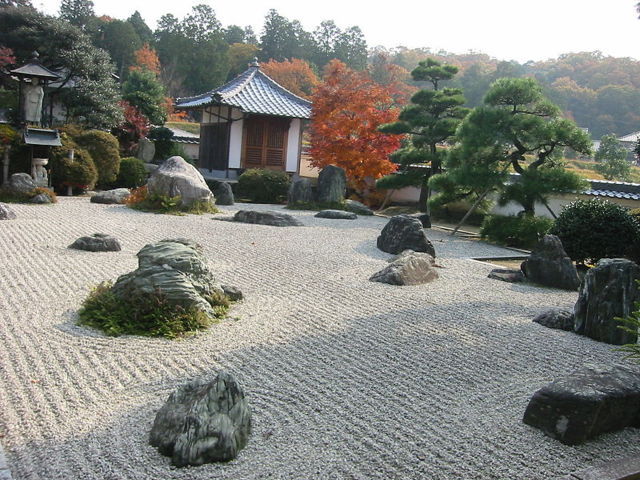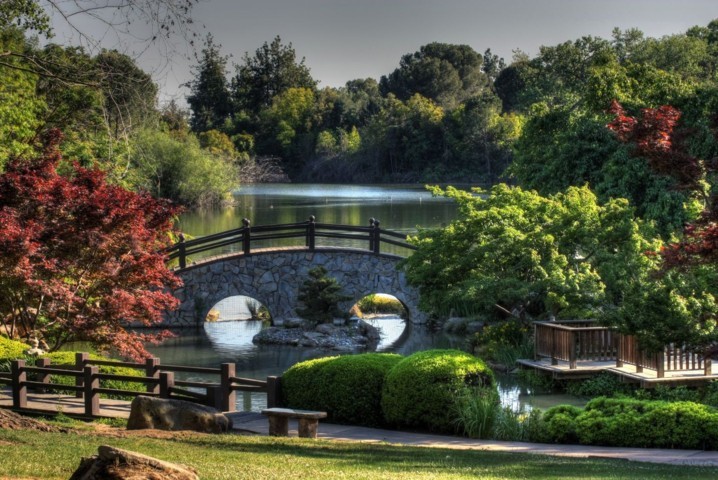The 7 Principles of Zen applied to Japanese Garden
Published: Terrace & Garden // Published 28.11.2018
The Japanese garden is a space that mirros the intimate principles of nature, a depiction of the universe, a space carefully designed with balanced elements and focus on visual harmony.
A very interesting feature of Japanese garden is the absence of flowers and the preference for a rather austere, strict style. Keep in mind that Japanese philosophy admires flowers regarding them as a special expression of life and thus avoiding to supply them only a decorative purpose.
The principles of a Japanese garden are derived from Zen philosophy, which has a particular subtlety, specific for traditional Japanese culture. There are seven such principles:
Kanso – simplicity. The expression (also for landscaping) must be simple and natural, with a garden landscape extracted from clarity and purity.

Photo source: www.skyscrapercity.com
Fukinsei – asymmetry. In Zen aesthetics, asymmetry is regarded as a method for controlling the balance in a composition, precisely because imperfection is a part of the existence.
Shibumi – beauty comes from the elegance of simplicity. The term actually defines the bittersweet taste, nostalgia. In landscaping it regards beauty as a non-intrusive and subtle concept, without visual explanations.
Shizen – natural. Absence of the artificial and a distinct target in creation, without anything forced or imposed. Shizen is even more interesting explained in Zen Philosophy: denial of naïve and casual. It is exhibited by a seeming simplicity and the idea of spontaneity in landscaping.

Photo source: photo.net
Yugen – allusion. The invisible is more important compared to the obvious. Landscapes are somehow concealed, playing with areas comes with surprises, the lake mirrors certain shadows, the associations of textures indicate elements etc.
Datsuzoku – surprise. The principle starts from the feeling of astonishment, of surprise, when it is out of the ordinary. The principle defines an elegant creativity and breaking the Convention pays respect to the emotion of the beholder.
Seijaku – tranquility. An active silence is pursued, an energized, alert and perceptive calm. This condition is the purpose of the garden, which should always convey the energy of active silence.
For further details on choosing the natural stone best suited to your project give us a call at +40318.222.333, or send us an email at export@piatraonline.com!
For the moment there are no comments from our users.
Write a comment or a review!